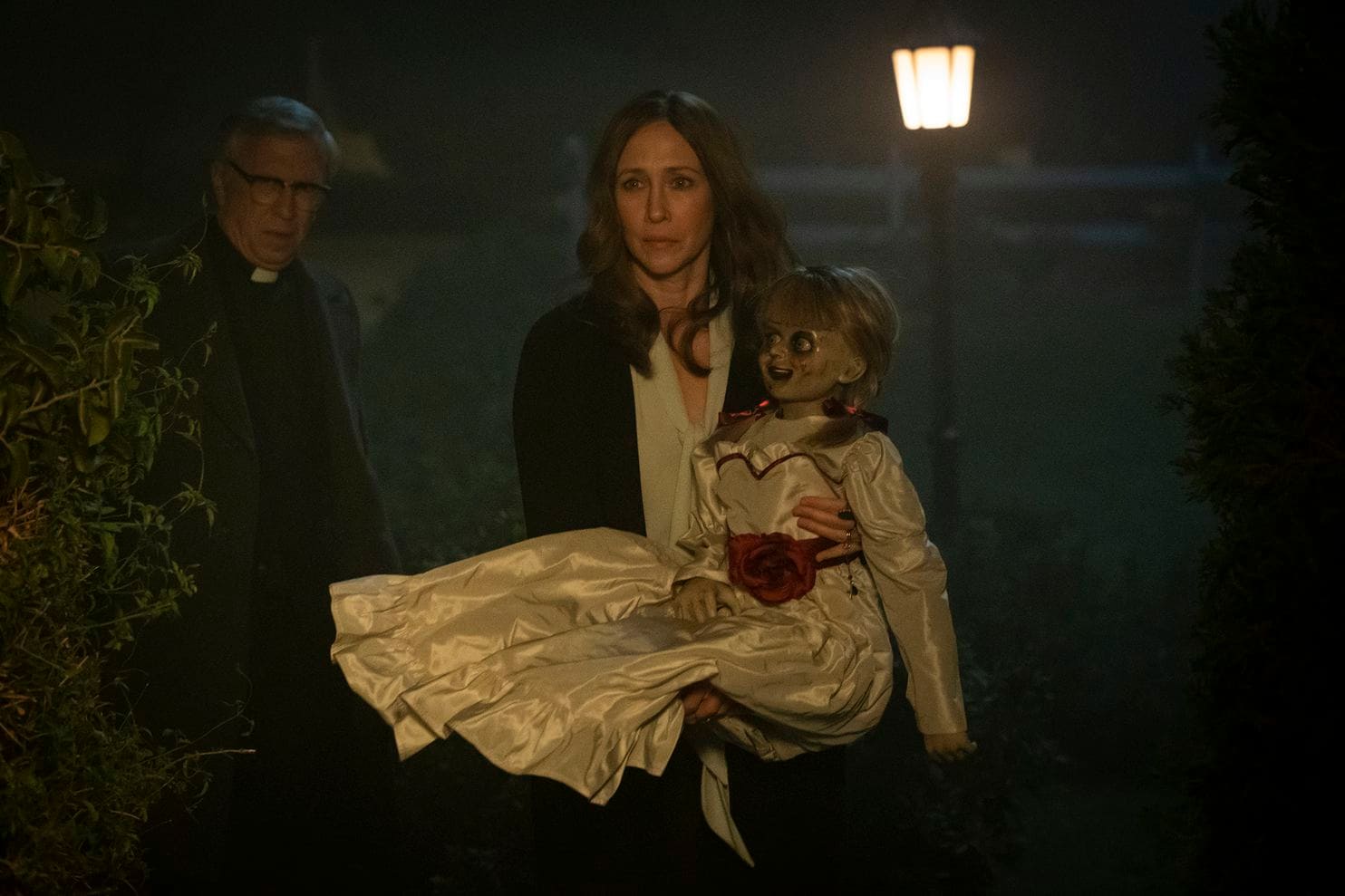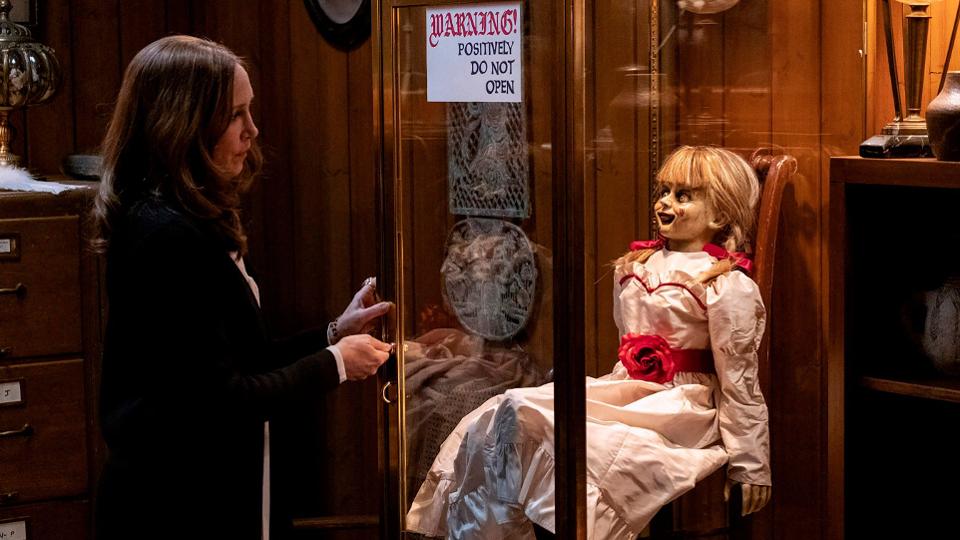Look, I am completely aware that there’s an audience for this type of movies. There’s a reason why The Nun grossed over a bajillion dollars with a mere $US 22 million budget and The Curse of La Llorona, made half a bajillion dollars with a micro-budget of two high fives and a doughnut. So, if you’re one who finds these films entertaining, if you find enjoyment and excitement in jumpscares, if the reason you go to horror films is to be startled, then more power to you. I can confidently say you will find at least some enjoyment in Annabelle Comes Home. But that’s not why I go to the movies. I go to the movies to follow characters on their journey. To sometimes root for them, sometimes against them, but always understand them. I also go to the movies for compelling stories. This isn’t a high standard. Story and character are the fundamentals of film. Yes, even horror! Over the past six years or so, we’ve seen a renaissance of the horror genre. A Quiet Place is a masterful display of suspense and escalating thrills, with note-perfect sound editing and mixing. But at its core, it’s a story about a husband and wife and their struggles to raise a family in the post-apocalyptic world. There is as much internal conflict (i.e. the father-daughter relationship) as there is external. Annabelle Comes Home has no story and no meaningfully written characters. It has one-dimensional people with backstories who have no arcs nor growth. Ed (Patrick Wilson) and Lorraine Warren (Vera Farmiga) go out for the weekend, leaving their daughter, Judy (McKenna Grace) with a babysitter (Madison Iseman) and her friend (Katie Sarife). Despite knowing she shouldn’t, the ‘friend’ character goes to the Warrens’ chilling basement filled with satanic artefacts and opens Annabelle’s cupboard. And that’s it. After some trivial set up — which frankly was the best part of the movie because it involved characters interacting and doing stuff — Annabelle Comes Home morphs into a carnival haunted house. There’s a lot of running around, a lot of screaming and an unfathomable amount of jumpscares coming from all directions by an assortment of undefined and uninteresting creatures whose sole purpose is to set up the next prequel movie. Every single frame in the movie is shot in a way to prep you for the next cheap jump scare. Nothing more.
There’s a difference between being afraid and being startled. Picture this. You’re in the bathroom humming the tune of Ed Sheeran’s ‘Shape of You’ while washing your hands after you’ve taken a piss. You open the bathroom door and… your little sister just jumps out of nowhere and goes BOO!. You yell, your body shakes a little and now your heart is racing. Next thing you know, you and your little sister are on the ground laughing. Just swap out your little sister with an ugly creature and you get movies like Annabelle Comes Home, The Nun and most mainstream horror movies today. Great horror isn’t about quick surprises. A genuinely horrifying story has the tendency to creep under your skin, raise the hair on the back of your neck and mess with you on a psychological level. I think of Netflix’s fantastic The Haunting of Hill House. The greatness of the series doesn’t stem from the shocking car jumpscare scene in episode 8. The real horror is watching the dysfunctional Crain family slowly implode. There, supernatural horror is a metaphor for mental illness and it’s really, really frightening. I also think of films like Get Out, Us, The Babadook and It Follows. Just like with the Netflix drama, the horror of these films sits with you on your drive back home from the cinema and brews in your head, giving you sleepless nights.
Annabelle Comes Home isn’t a film but a theme park ride. It’s about the immediate jump and nothing more. It isn’t atmospheric, mysterious, doesn’t pique your curiosity and not remotely thrilling. I was bored with it, struggling to keep awake. I would’ve been angered if it wasn’t for the fact that I expected nothing more. Sure there are some good to be highlighted as well. Cinematographer Michael Burgess’ knows how to move the camera in interesting ways, even during the quieter moments in the beginning, and McKenna Grace is believable and likeable as Judy Warren, despite only being a child actor. It’s also always good to see the pairing of Wilson and Farmiga on screen, despite their very limited screentime here. But overall, it’s just another rotten film that’s, unfortunately, going to make a lot of money and help the dreadful disease this subgenre has become to continue to fester and decay. Annabelle Comes Home? It’s better if you just stay at home.
Rating: 1.5/5

